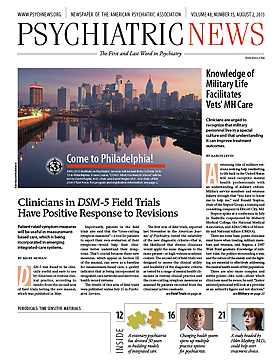Drug companies aren’t held in high esteem by the public these days. There are many reasons for the companies’ poor showing, including high drug prices, aggressive marketing practices and direct-to-consumer advertising, efforts to buy influence with physicians, and, perhaps most egregiously, the suppression of data on drugs’ dangerous side effects. Couple these issues with the fact that innovative drug development has slowed to a crawl, and it’s not easy to muster much defense of the pharmaceutical industry.
But let’s face it, they need us and we need them. We must recognize the important, beneficial role that drug companies have long played in all areas of medicine. While not minimizing problems, we simultaneously must remember how products have improved the quality of health care and quality of life in our society, and their funding has helped to advance research, public outreach, and training. As a point of comparison, the pharmaceutical industry is not the tobacco industry. Were Big Tobacco companies to disappear tomorrow, the negatives of lost tax revenue and wages would likely be far more than offset by improved public health and reduced health care costs. But if drug companies were forced out of business, where would we be? Where would we find the new interventions to reduce disease morbidity and mortality? Who would invest in the production and distribution of medicines, vaccines, and medical devices? And for the field of psychiatry, how would much of the essential treatment development research be funded now that the National Institute of Mental Health is focused increasingly on genetics and basic research? (Indeed, President Obama’s recent announcement of the $100 million Human Brain Mapping Initiative, which will fund the development of nanotechnology for brain research, exemplifies the federal government’s de-emphasis of clinical research.)
The contributions that pharmaceutical companies make to our society do not excuse any past or present excesses, misbehavior, or unethical activity. But the most honest assessment acknowledges the good as well as the bad. And the truth is that the industry is indispensable. Our society needs the private sector to advance critical drug and device development and distribution. Physicians need companies to provide the materials and training on how treatments should be used. Certainly, scientists need support from the same in the form of sponsored research and fellowships that contribute to the future of the medical profession.
At the same time, these companies need physicians and researchers. The first provide information on treatment practices, unmet clinical needs, and how drugs work in the “real world” when prescribed for large, diverse populations. Similarly, researchers guide companies through biologic-target selection to evaluation of new compounds in both preclinical and clinical phases of development. Academic psychiatrists also provide vital information on study design, dose selection, and clinical indications.
In psychiatry, past problems arose when companies engaged in aggressive marketing practices in the guise of educational activities and paying clinicians and researchers—so-called key opinion leaders—for their advice or research in ways that were perceived as potential conflicts of interest. The issue came to a head in 2007 when Sens. Herb Kohl and Charles Grassley held hearings on the financial relationships between drug and device companies and psychiatrists and called for corrective and punitive actions. Ironically, somehow in this process, our field became the poster child for physician misbehavior. The attention and criticism prompted universities to adopt stricter ethics and financial-disclosure policies, and professional associations, including APA, to pull back and keep companies at arm’s length.
Indeed, APA immediately and drastically reduced its relationships with the pharmaceutical industry. We adopted the strictest ethics policy of any professional association for members participating in key programs such as the development of practice guidelines and the revision of DSM. At our annual meeting, “industry-supported symposia” for CME are no longer included in the program.
We now are moving forward with careful vigilance in ways that recognize the value of industry relationships. Under the auspices of the American Psychiatric Foundation (APF), interactions with industry are helping to restore important relationships. I recently attended an APF Corporate Advisory Council meeting at which representatives from 14 companies were present. It was clear that they desired re-engagement with physicians and researchers, and, most importantly, they understood that all such interactions must be transparent, rigorously monitored, and without conflict of interest. I know that talking about relationships between psychiatrists and pharmaceutical companies makes people nervous. But speaking for myself, I believe that the rules and models for informational, educational, and research engagement can and should be developed and applied in ways that allow for our optimal engagement with companies. Doing so would not only help us learn from the mistakes of the past; it would help us improve the future for our profession and our patients. ■

